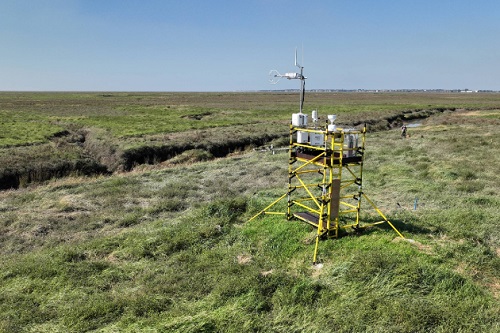Aviva and WWF launch innovative saltmarsh research in Lancashire

Authored by Aviva
Aviva and WWF (World Wide Fund for Nature) has announced a new research project on the role UK saltmarsh habitats can play in fighting climate change and removing carbon emissions from the atmosphere. This new saltmarsh research platform will help scientists assess the carbon storage and sequestration potential of saltmarshes across the UK.
The project involves a carbon flux tower being installed on the Ribble Estuary, Lancashire. The flux tower will measure the full carbon cycle to validate the important role of saltmarsh as a long-term, natural store of carbon. It will also investigate the effect of rising sea-levels on saltmarsh habitats, helping to prioritise areas for restoration and conservation. By live monitoring levels of carbon cycling between the landscape and the atmosphere, this data, combined with traditional methods of analysing carbon stored in saltmarsh soils, will show how much carbon is captured, how quickly, and for how long it is stored. The project supports Aviva’s ambition to make the UK the most climate-ready large-economy by 2030.
The research – carried out in partnership with WWF, and in collaboration with the UK Centre for Ecology & Hydrology (UKCEH) and the Royal Society for the Protection of Birds (RSPB) – will be shared to better understand the carbon capture and storage capabilities of saltmarsh, contributing to establishing a UK Saltmarsh Code.
Native to the British Isles, saltmarshes have a significant role to play in fighting climate change by providing a long-term, natural store of carbon – known as ‘blue carbon’ when stored in coastal and marine ecosystems. Saltmarsh is also key in reversing nature loss and creating a rich and unique habitat for plants and animals specially adapted to the conditions. It is estimated that 85% of English saltmarsh has been lost in the last 200 years – primarily as a result of historic conversion to agricultural land.
The structure of a saltmarsh:





